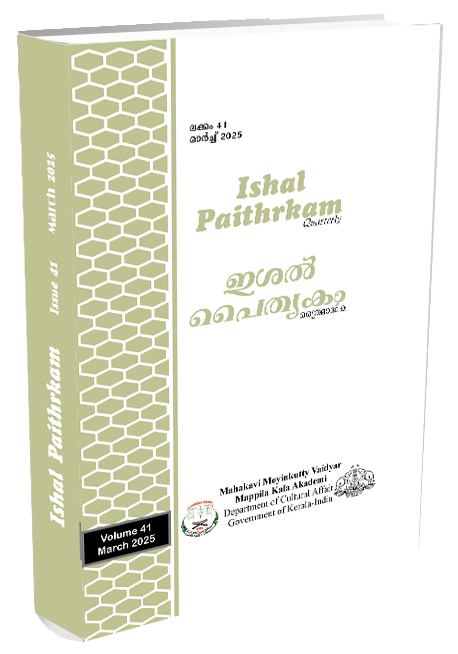Political Manifestations of Modernity : A Critical evaluation based on the Early Poetry of K.G. Sankara Pillai
Keywords:
Modernity, Political Modernity, Romanticism, Naxalite Movement, Left wing Extremist MovementAbstract
It was in the 1960s that the modernist movement picked up its prominence in Malayalam literature. The movement brought about consequential transformations in aesthetic sensibilities of Malayalam literature , both in form and content. “Western Society of the post enlightenment period accomplished substantial technological and social advancements, propelled by the Industrial Revolution and colonial expansion . Modernity delineates this Socio- ideological paradigm that sculpted the influential philosophy of the modern world. The Prototypical modernist writings in Malayalam often imported and comprehended the principal elements of western modernity, like existentialism, nihilism, melancholia, narcissism, and experimentalism .“Almost all the early modernist works were composed predominantly of subjective, romantic framework. The early modernity was characterized by nihilistic and self-centered perspectives and a transition from this was witnessed in the 1970s. Perceptible characteristics of this subsequent evolutionary phase was evident in Malayalam poetry during the late 1960s and 1970s, addressed properly as "political modernity" by critics , afterwards . Poems by K.G. Sankara Pillai, Sachidanandan, Kadammannitta Ramakrishnan, Aattoor Ravi Varma, and Balachandran Chullikkad express attributes diverging from the general contours of modernist precinct . “The peasant uprisings in West Bengal in late 1960s had its reverberations felt far and wide across India. This movement, later termed singularly as the Naxalite movement, mobilized both political and cultural repercussions across the country. Political modernity in Kerala was consolidated in this socio-political contexture as a second-phase manifestation of the modernist movement. Even though it is identified as "political modernity," the glimpses of romantic elements and the literary preservation of essential modernist attributes within its content call for critical perusal and evaluation . This paper attempts to undertake such an analysis.
Downloads
References
Presannarajan, 1992, Kerala Kavithayile Kaliyum chiriyum, National bookstall, Kottayam.
Raveendran P. P., 2002, Nammude Sahithyam Nammude Samooham, M. N.Vijayan (Ed.), K erala Sahithya Accademy, Thrissur.
Rajeevan B., 1984, Kavithayude Sathyam ( Avatharika ), Kavitha - K. G. Sankarapillai, Paricha publications, Thiruvalla.
Sankarapilla K.G., 1984, Kavitha, Paricha publications, Thiruvalla.
Sankarapilla K.G., 1997, K.G.Sankarapillayude Kavithakal, D.C. Books, Kottayam.
Sasidharan N., 1994, Desathe Ezhuthunnathanu Ezhuth -K G.Sankarapillayumayi Abhimukham, Sukrutham Masika, June - September.
Sachidanandhan, 1991, Anweshanankal, Bodhi Publishing House, Kozhikode.
Civic chandran, 2009, Ezhupathu kal vilichappol , Fabian Books, Mavelikkara
Downloads
Published
Issue
Section
License
Copyright (c) 2025 ISHAL PAITHRKAM

This work is licensed under a Creative Commons Attribution-NoDerivatives 4.0 International License.

